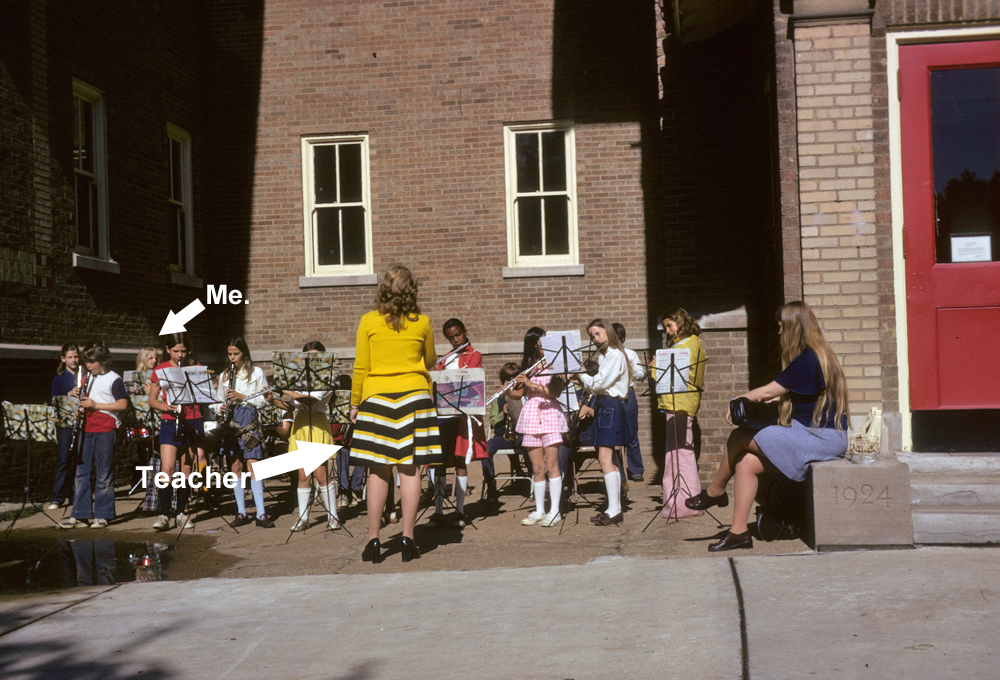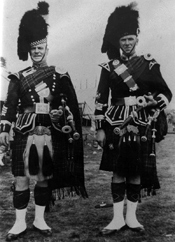Solitary confinement
 I’ve said before that Highland piping is often a solitary pursuit that attracts introverts. The lone piper. Solo competition. Hours of isolated practice at home. Maybe nowhere in our art is independence more evident than in our music creation.
I’ve said before that Highland piping is often a solitary pursuit that attracts introverts. The lone piper. Solo competition. Hours of isolated practice at home. Maybe nowhere in our art is independence more evident than in our music creation.
An estimate based on a lifetime of observation is that 99% of pipe music is written by a lone composer. Music creation in our world is thriving, driven by an ever-present thirst for the new by competition pipe bands. A band with a strong composer in its ranks has a great advantage.
I work in the songwriting, composing and music publishing side of the music industry. Our piping and drumming world is a model of creativity. But it’s also a relative outlier in that our composers don’t truly collaborate with each other to make tunes together.
Songwriters (also usually introverts), on the other hand, actively seek out new ideas from their peers. They attend song camps with other writers. They trade notes, as it were, and concepts for new music. Their publishers will put together writers from disparate genres and styles to see what happens. They chip away at their stuff, adding a word here, a key change there. They experiment with different idioms. They are almost always totally open to working together to create a better or more widely appealing work.
The exceptions to pipe music composers writing in solitude are generally the instances of a composer tacking on a few parts to an existing tune. Donald MacLeod did it a lot with traditional pieces, to the point where we attribute “The Wee Man from Skye,” for example, to him as the sole composer, when in fact it’s his arrangement. Piping schools will sometimes have an entire class compose a tune, coming up with phrases and changes together. Mainly because these pieces are written by relatively inexperienced pipers, they’re generally not great (read: terrible) compositions, but well intentioned and educational though they might be.
I was once in a band where, like most bands, we’d sit around the table with practice chanters in the winter and trade ideas on music possibilities for the next season. There were several composers in the band. They’d pitch new compositions, and the rest of the pipe corps would suggest a note change here, a timing improvement there, or even a collective Ugh! on first-listen of some or other hopeless piece. The group as a whole was a good editing machine. It was collaborative and, in many instances, it was a co-writing process. The tune got better when rattled around the ears of others.
Tunes that go through an editing process are almost invariably better. I don’t know what G.S. McLennan’s writing process was, but I would guess that he would, as I understand Donald MacLeod did, bounce tunes off of carefully chosen trusted pipers for their opinions and suggestions and then make many amendments and revisions before declaring a piece “final.” And no piece of music is ever final, anyway.
Composers who collaborate will often realize that they’re better off trashing a tune altogether. On their own, they might not twig that it’s too close to another piece designed around our nine notes, or that the new tune is unplayable or, um, unappealing.
Most composers do seek advice and suggestions about their draft work, but rarely if ever would they give credit to another piper as a co-writer, whereas in songwriting and composing in other genres it wouldn’t only be expected, it would be legally prudent. There’s a saying in the songwriting industry: “Change a word, get a third.”
How many pipe music composers sit down with one or more other composers to create a tune from scratch? Are there bands out there where the pipers sit around that winter table and collectively create a tune needed for the new medley? Or do all bands expect “the composer” in the band to come up with something great on his or her own?
I know that most of us are introverts who, perhaps paradoxically, like being in a spotlight, letting our music speak for us. But when it comes to new compositions, taking the cue from successful songwriters and seeking real collaboration could well pay better dividends for the art.


 Scotland has resurrected piping and drumming to unprecedented new heights through widespread, accessible teaching. It’s an awesome and continuing success story, and the fruits of its strategy have become more and more evident with each passing year.
Scotland has resurrected piping and drumming to unprecedented new heights through widespread, accessible teaching. It’s an awesome and continuing success story, and the fruits of its strategy have become more and more evident with each passing year.


 It’s regrading time, and that means associations all over the northern hemisphere are considering results and making decisions as to who should go up and down the competitive ladder.
It’s regrading time, and that means associations all over the northern hemisphere are considering results and making decisions as to who should go up and down the competitive ladder.
 I was reminded to remember a topic I’d forgotten to write about: memory. Specifically, the unwritten rule or tradition that pipers and drummers must memorize music.
I was reminded to remember a topic I’d forgotten to write about: memory. Specifically, the unwritten rule or tradition that pipers and drummers must memorize music.


 I like making resolutions. Pipers and drummers especially I think can make a few new commitments at the beginning of the year, and here are a few suggestions, each of which have helped me as a piper.
I like making resolutions. Pipers and drummers especially I think can make a few new commitments at the beginning of the year, and here are a few suggestions, each of which have helped me as a piper.
 “I broke down.”
“I broke down.”




 There was a recent cartoon in The New Yorker magazine that to put the Highland pipes on the same level of abuse as the American banjo. We all know that the pipes are much maligned (mainly by those who only know them by the ear-wrecking sound of rank novices who refuse lessons, with no interest in improving, who insist on publicly displaying their inabilities – our own worst enemies), but the banjo? I always thought it added instant happiness to all genres of music, including its native bluegrass. Who doesn’t like the banjo?
There was a recent cartoon in The New Yorker magazine that to put the Highland pipes on the same level of abuse as the American banjo. We all know that the pipes are much maligned (mainly by those who only know them by the ear-wrecking sound of rank novices who refuse lessons, with no interest in improving, who insist on publicly displaying their inabilities – our own worst enemies), but the banjo? I always thought it added instant happiness to all genres of music, including its native bluegrass. Who doesn’t like the banjo? a sense, it gives us the power to see ourselves as others see us.
a sense, it gives us the power to see ourselves as others see us. abuse against it that we see hurled at our treasured bagpipe? Hardly. With few exceptions, and after weeding out references to
abuse against it that we see hurled at our treasured bagpipe? Hardly. With few exceptions, and after weeding out references to 







![Unforgettable. [Photo:Linda Graham]](https://www.pipesdrums.com/storage/2012/01/Trash_Pipes_small.jpg)


 The
The 




